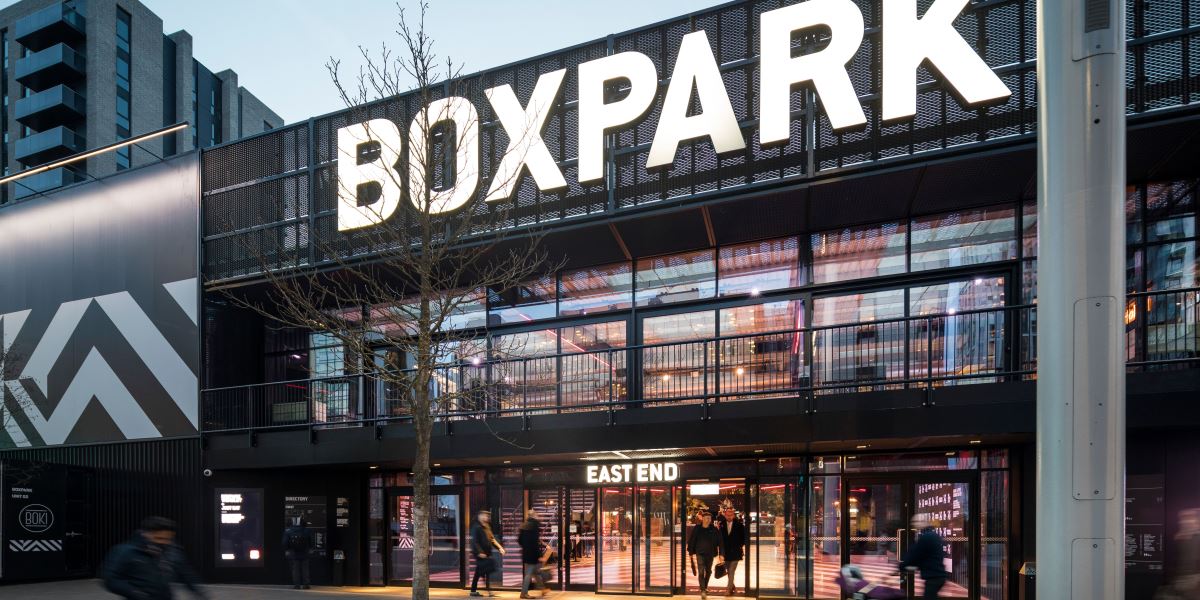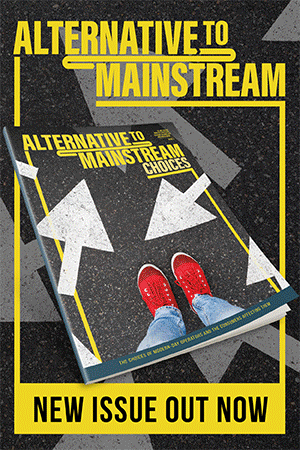The big interview: Boxpark

Boxpark has confounded the drive to e-commerce with a winning retail and leisure formula that is focused on local communities. Chief executive Simon Champion tells Jane Renton that it is embarking on expansion while others are retrenching...
Up until the pandemic, Boxpark, with its initial pop-up mall assembled from shipping containers in London’s most hipsterish hangout – Shoreditch – epitomised like no other the retail zeitgeist of our times. Designed to appeal to the young, or at least the young-at-heart, it was, and still is, a perfect concept for millennials, as well as those behind them – the gen Z-ers – with its relentless focus on 'Eat. Drink. Play'
But Boxpark’s resulting success is also built on local communities and their independent traders. “We are all about making customers feel special and bringing communities together so that everyone feels like they belong; and this is embedded into the culture of the company,” says Simon Champion, who took over the helm of Boxpark from founder Roger Wade earlier this year.
That founding principle has served the company well during even during the recent lockdowns when trading was not possible. Despite the closure of all its sites, the company still managed to break even in its last reported results to the year to April 2021, even though turnover fell by 55% as a result of only 22 weeks of trading. That performance was even more remarkable given that Boxpark, using government retention schemes, managed to retain most of its staff and has since expanded its workforce.
Since then, however, things have improved considerably, perhaps it seems as a direct result of its predominantly younger clientele. Indeed, many of them were the prime beneficiaries of recent salary hikes compared to the older demographic of other pub and restaurant brands.
“At present, our trading remains strong and footfall and revenues are well above pre-Covid levels,” says Champion. “Our teams have worked hard to create a compelling reason for consumers to visit and spend time and money at our venues by ensuring the experience at Boxpark is high value.”
It seems that Boxpark is not only innovative but also resilient. As Champon points out, it is a business with many layers and strands. It is an operator in that it runs its own bars, but also a landlord with 25 plus tenants at each of its three locations who pay Boxpark rent. It also controls its advertising spaces, the billboards and large screens on its sites, all of which generate additional revenues.
“We’re a profitable business because of our multiple revenue streams and our flexible cost model being able to adapt our labour supply such as security, cleaners and bar staff,” explains Champion, who initially joined the business in 2018 as chief financial officer. He is a former chief executive of easyHotel, the operation established by serial entrepreneur Stelios Haji-Ioannou, the founder of low-cost airline easyJet.
But what really sets Boxpark apart is the range and diversity of the 75 independent businesses that it partners with across retail, fashion, entertainment, food and drink, as well as leisure. “We are nothing without our traders and vice versa” says Champion. “This really sets us apart from others in the hospitality space.”
But as Champion emphasises, food and drink remain the core of what Boxpark is about. However, each site’s offer is adapted to meet local tastes and preferences. Boxpark in Croydon, for example, was created with a markedly different demographic in mind to Shoreditch and even Wembley. This will also be the case when a further three new Boxparks get rolled out next year in Bristol, London and Liverpool.
It will also be the case with other new sites, which the company intends to roll out at a rate of three each year over a 10-year timeframe. “We are focused on delivering multiple Boxpark and BoxHall [the sibling premium food and beverage concept] schemes each yea,” says Champion. “But with each scheme, we will adapt our offer for each local market.”
Boxpark in Bristol, for example, will have a diverse music programme that reflets the city’s vibrant scene. Liverpool, meanwhile, will focus strongly on Boxpark’s ‘fanpark’ concept to reflect the city’s strong football and sports culture.
That expansion is taking place in a financial environment where low interest rates and capital liquidity are receding. “Finance is more expensive in the short-term, but access to capital and higher interest rates will undoubtedly slow hospitality industry investment,” Champion acknowledges.
However, Boxpark already has financial backing in place through Lloyds Development Capital, which makes this arguably a propitious time to adopt a contrarian position. “Ultimately that’s why it is a good time in the property cycle for us to be investing in growth – we zig while other’s zag,” Champion observes.
Champion himself has an extensive background in finance and has worked for Deutsche Bank. He was also finance director at premium popcorn brand Propercorn, where he oversaw the group’s first foray into private equity.
As a result of his wide experience, Champion remains entirely realistic about the severity of the current market challenges facing his newest venture, which include rapidly rising energy fuel bills. He is also less than impressed by the government electricity support packages that are in place for British homes and businesses like his.
More help is needed for the hospitality industry, he believes. “To put it bluntly, there is support but that support is helping electricity companies more than businesses. The Government should have considered fixing end prices to businesses.”
As he points out, anyone unfortunate enough to be re-pricing contracts now has to fix into high rates beyond March 23, as the support provided by government does not match the terms being offered by electricity companies. The government has promised to review further help for hospitality, something that Champion says is urgently needed.
But it is not just energy prices that are hurting. Food price inflation has recently risen to 15% for Britain’s pubs and restaurants. “This not only affects us but our food traders who are mostly small, independent businesses,” says Champion. “We want our prices to remain affordable and fair for our customers.”
A reduction in taxes would clearly help. “We need better government support to help curb inflation, such as a small VAT cut or slashing the tax rate to just 15%,” says Champion. “This would help businesses from being forced to hike prices again.”
All these challenges, which also include overcoming widespread labour shortages in hospitality and the ongoing need to be ever more sustainable as a business, would be demanding enough, but on top of managing those issues, Boxpark has set itself on a highly ambitious growth trajectory. “We’ve developed three great successful sites, but tripling this in the next two years would challenge any business,” acknowledges Champion.
This, and the fact that the company will be hosting over 5,000 events a year, maked this an especially exhilarating time, but one that its new chief executive remains confident that he and his teams can fulfil. “We’ve invested a lot in our central team, invested in fantastic technology and looked at our processes and so we are confident we can do it,” he says.
After all, as Champion points out, he has worked in declining industries as well as growth businesses, and it is ways better, and certainly more enjoyable, to work in the latter. But most of all, his most abiding business principle is to work with nice people, saying that core competency, and decent colleagues, make for a winning formula that makes one succeed when others struggle.

















